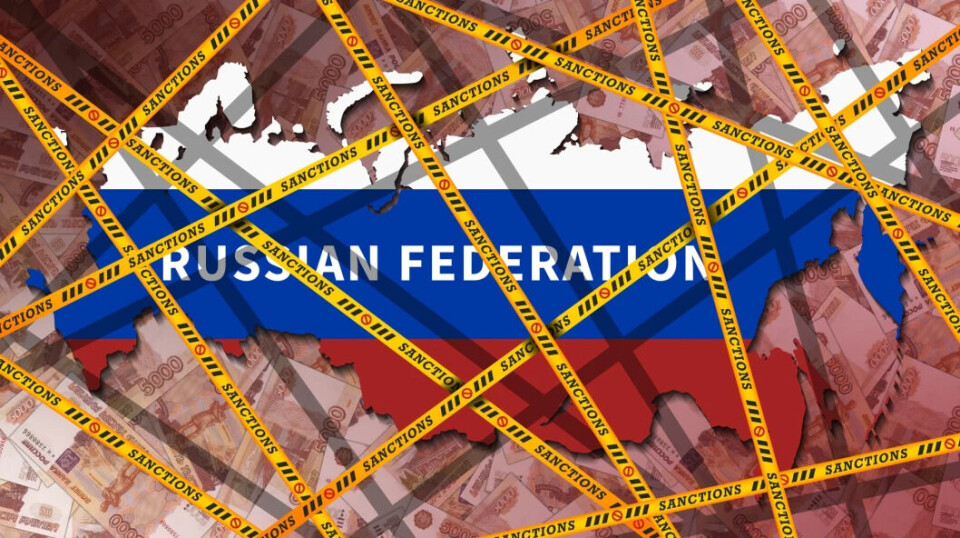THIS CONTENT IS BROUGHT TO YOU BY University of Oslo - read more

Is it OK for states to independently enforce international rules?
Norway's sanctions against Russia have been justified as countermeasures against the country's illegal war of aggression in Ukraine.
“No one would consider it ideal if a state were to take the law into its own hands when another state has violated an agreement. Nevertheless, countermeasures are an important principle in international law and cannot easily be prohibited,” Jørgen Sørgard Skjold says.
Skjold has conducted research into countermeasures, a concept in international law that has received little attention in recent jurisprudence research.
When binding rules are violated in a state governed by the rule of law, such as Norway, there is a centralised system in place consisting of stakeholders and formal institutions that can be turned to for help. This includes the police force, appeals committees, legal advisers, and the judicial system.
This is why nation states taking the law into their own hands is now largely a thing of the past. But this is not necessarily the case between states in the international arena.
Sanctions as countermeasures
Rules relating to when states can take the law into their own hands have been enshrined in international law. In law, we often refer to this as countermeasures.
Specifically, this means that there are some cases in which a state may have the right to cease to comply with a rule of international law if such rules have been violated by another state.
When Norway imposed sanctions against Russia, in response to the Russian invasion of Ukraine, some parts of the measures were justified as countermeasures against Russia’s unlawful war of aggression.
“However, this is a subject and practice that has not received much attention in recent jurisprudence research,” Skjold explains.
Skjold recently defended his thesis on the subject at the Faculty of Law at the University of Oslo. He works at the Legal Department of the Norwegian Ministry of Foreign Affairs.
His work has proven to be a key contribution to basic legal research. The subject is highly relevant both theoretically and practically, considering developments in the international arena and the war in Ukraine.
It is especially relevant as sanctions have become an important political instrument for responding to serious violations of international law.
Must be viewed in relation to the violation
The rules relating to countermeasures set out in international law provide the conditions for states’ right to independently enforce international rules. A countermeasure may consist of suspending an obligation under international law that has been enshrined in a treaty in response to another state’s violation of international law.
A countermeasure must be justified on the grounds that the state against which the measure is directed has done something in violation of international law. The measure must aim to encouraging the state to stop violating international law. Additionally, they must take the necessary steps to remedy any damage. A countermeasure must always be proportional in relation to the violation.

The rules relating to countermeasures are part of the general rules relating to state responsibility. The rules have a long history in international law and, theoretically, these rules deal with the core of international law and how it has been structured as a legal system that differs from national law, which typically does not allow for taking the law into one’s own hands in the event of violations.
Interesting from both a theoretical and practical perspective
The rules relating to countermeasures in international law are important both from a fundamental and a practical perspective.
Understanding what countermeasures are and what is permitted under the rules is also of major practical importance in connection with dispute resolution, legal argumentation, and international relations in general.
If a state claims that an act qualifies as a countermeasure, this would have the potential to relieve the state of any legal responsibility for acts that violate international rules.
“This is very interesting from a theoretical perspective, but also from a practical perspective. There are potentially some fairly significant practical implications of having a concept that allows states to exempt themselves from their obligations by stating that they do not wish to fulfil their obligations under the agreement as the other party has not fulfilled theirs,” Skjold says.
For this reason, it is important to possess knowledge of the situations in which countermeasures can be applied and the situations when they cannot or should not be applied. Jurisprudence has an important role to play here.
A lack of options generates a need for countermeasures
Skjold notes that countermeasures constitute a fundamental concept in international law. This is because there are few other options available to enforce rules between sovereign states.
“There are few available systems for international enforcement. Independently enforcing obligations by not fulfilling your own obligations is therefore one of the instruments available to states," he says.
This allows states to take matters into their own hands without having to go through a central authority.
Under international law, there is no unified state that can intervene and assist in the enforcement of rules. There are institutions with expertise in some specific areas, but these cannot be used in many cases.
This takes us back to the starting point: States needing to deal with things themselves.
In today’s international relations, countermeasures have taken on an important role as a possible legal basis for international sanctions that are not based on a UN mandate, such as parts of the western sanctions against Russia.
The need for countermeasures is reduced
“It is important that international law professionals understand when, where, and how countermeasures can be applied by states as an acceptable legal basis for actions that normally contravene the international obligations of the state,” Skjold says.
In today's reality, there are many institutional structures such as the UN, the World Trade Organisation, and others that offer what can be referred to as centralised dispute resolution and enforcement in the international system in various ways.
“So when, for example, the UN Security Council decides that states must freeze assets and the like, the decision will generally be justified under the UN Charter. It states that the Security Council can adopt certain measures. States can, in turn, base their measures on this decision rather than implementing their own countermeasures," he says.
The emergence of institutions has reduced the need to use countermeasures. This is because there are other ways in which to manage disagreements.
So we can ask: Does international law actually need to allow for states to enforce rules on their own in certain situations? Is this not an outdated model? Hasn’t the global community progressed beyond this by now?
Is taking the law into your own hands 'old-fashioned'?
Skjold notes that taking the law into your own hands can be understood simply as a primitive way of enforcing the rule of law. This is also how it is commonly considered in legal research. There is a reason why national legal systems have had no desire to continue this practice.
Nevertheless, it is difficult to imagine international law extricating itself from such a concept, as the counterpart to self-enforcement is centralised enforcement.
And while this exists in the international system, it is not always available in the same way as under national law, where the courts and police are normally ready to manage any disagreements that arise.
“So yes, it is a primitive form of enforcement, but it is also an important part of international law, as international law lacks the centralised systems available to nation states. However, no one considers it ideal for countermeasures to be used. No one considers countermeasures to be a goal in and of themselves. But there are certain situations in which countermeasures can be necessary," he says.
Skjold adds that the sanctions against Russia are one such example.
This relates to a very serious violation of international law, but it is impossible for the UN Security Council to adopt further measures because Russia is a member of the Security Council and could veto any intervention from the Security Council.
Important to regulate countermeasures
One key argument in Skjold’s research is that, despite the disadvantages of self-enforcement on an international level, it is important to reflect on what the situation would be like if self-enforcement was prohibited under international law.
States are unlikely to refrain from responding to violations. Perhaps they would deal with the situation without regard for any rules relating to the procedures that need to be followed, the conditions under which countermeasures can be applied, the agreements that can be suspended, and so on.
“The law would then abandon the ambition to govern such activities. I believe this would lead to a worse situation than if we say that 'we acknowledge that this is something states will do and we are committed to ensuring that the process is governed in an acceptable manner',” he says.
Skjold therefore argues that self-enforcement is of relevance. He cannot quite see how it would stop being of relevance to international law. It does not seem likely that the system will introduce centralised mechanisms for enforcement, such as those seen in national law.
“This is where the purpose of the law comes in. The value and advantage of accepting that states can, in some situations, independently enforce rules through countermeasures can be found in the fact that such practices can be governed," he says.
Reference:
Jørgen Sørgard Skjold: 'Countermeasures in International Law - Function, Limits and Systemic Relevance', Doctoral thesis at the University of Oslo, 2023. (Abstract.)

This content is paid for and presented by the University of Oslo
This content is created by the University of Oslo's communication staff, who use this platform to communicate science and share results from research with the public. The University of Oslo is one of more than 80 owners of ScienceNorway.no. Read more here.
More content from the University of Oslo:
-
Where humans outshine AI: “There's something hopeful in these findings”
-
Why we need a national space weather forecast
-
Mainland Europe’s largest glacier may be halved by 2100
-
AI makes fake news more credible
-
What do our brains learn from surprises?
-
"A photograph is not automatically either true or false. It's a rhetorical device"




































